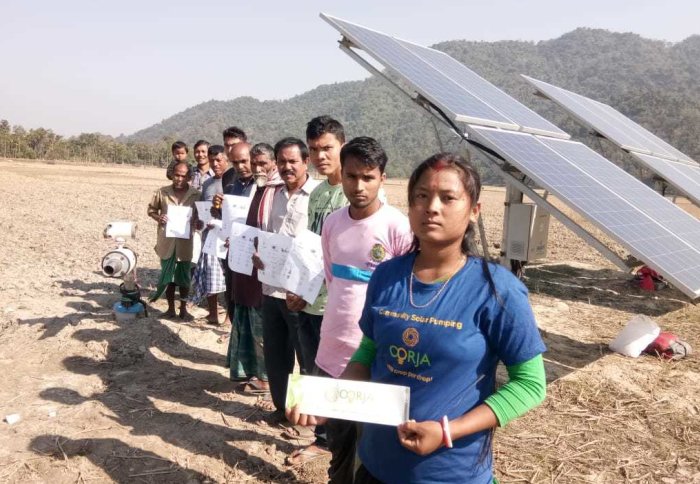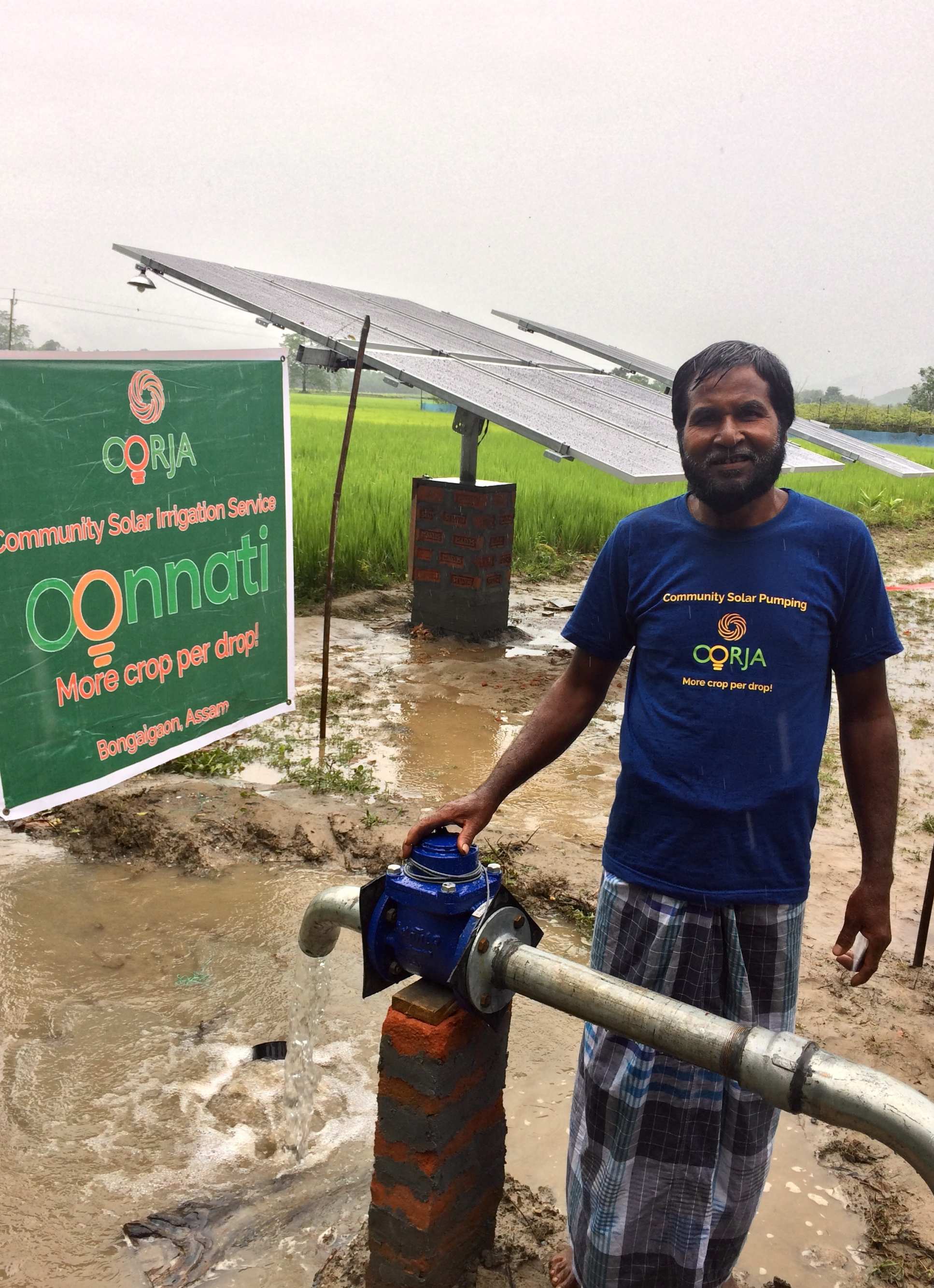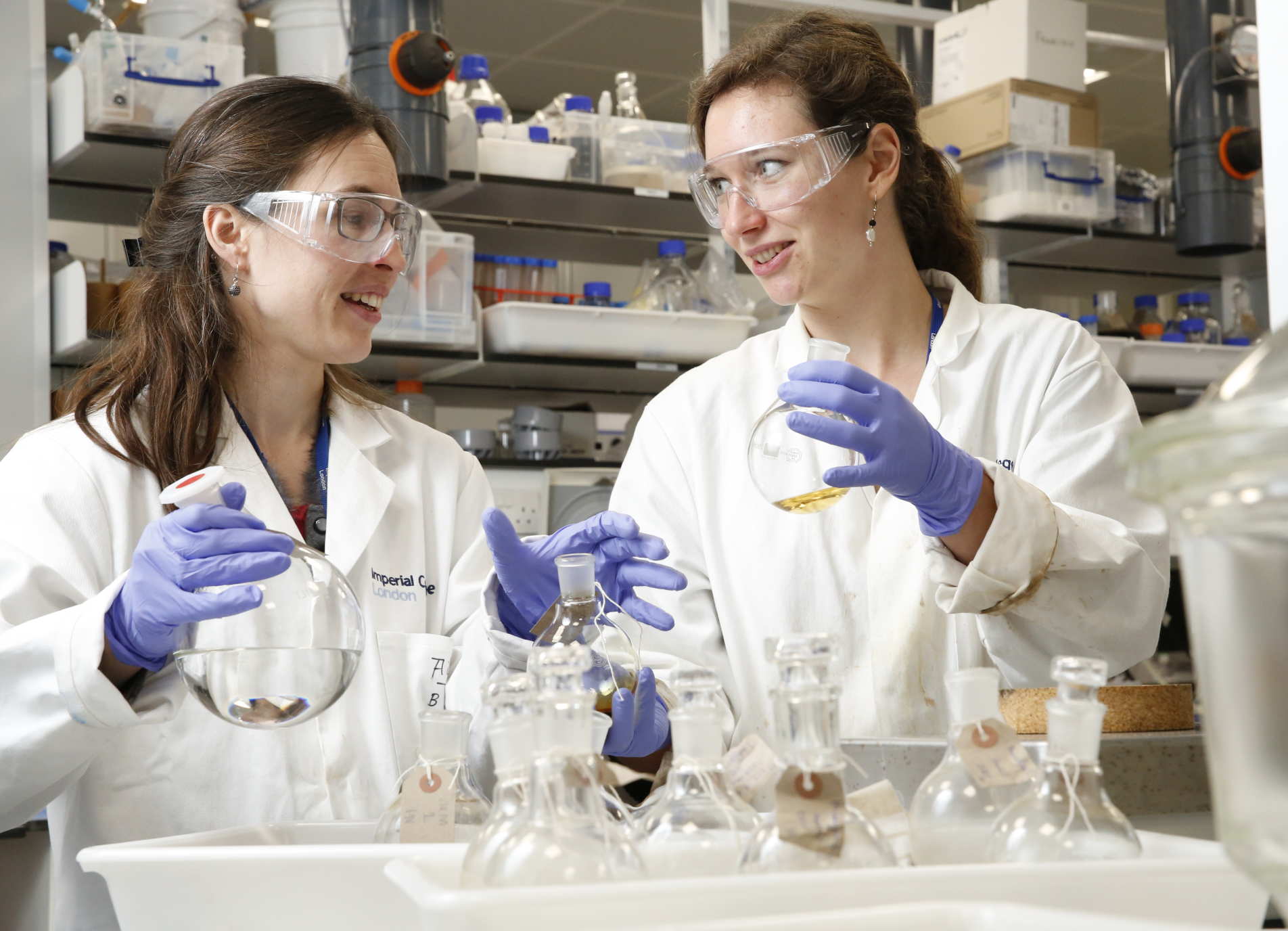The enterprising women who are part of the cleantech revolution
by Kerry Noble

Oorja provides solar power mini-systems to power water pumps for irrigation in India.
Here we meet some of Imperial’s entrepreneurial women who are at the forefront of creating a low carbon economy.
Women leading new sustainable businesses find it more difficult to get investments compare to men, according to the London Sustainable Development Commission’s ‘Women in Cleantech’ report. However, the report also found that when women do succeed in creating startups, those businesses are more likely to flourish and bring a return on investment.

Greener irrigation
One such business is Oorja Development Solutions, a social enterprise that is helping small-scale farmers in northern India to switch from using water pumps powered by diesel to a solar-powered system. Co-founded by Dr Clementine Chambon, graduate of Imperial’s Department of Chemical Engineering, Oorja has already installed twelve solar-powered pumps, which provide farmers with pay-as-you go access to their greener and more affordable irrigation solution.
Female founders are good at building cleantech businesses. Disadvantaging them disadvantages the transition to low carbon and resilient economy for all of us. Professor Richard Templer
“Unlike diesel pumps, solar submersible pumps can deliver water year-round,” Dr Chambon explains. “Farmers have been able to reduce their expense on irrigation by over 20 per cent and they’ve started growing high-value crops and expect their income from agriculture to increase significantly.”
With an investment of 275,000 Euros from the Dutch DOEN Foundation’s Sustainable Energy programme, Oorja will expand its operations to reach 600 farmers in 2020. The company plan to deploy 35 solar projects providing pay-as-you-go irrigation, as well as cold storage and processing services in rural markets.
Cleaner recycling
Another woman to take part in the second round of Imperial’s Techcelerate programme, which aims to provide postdoctoral researchers the time, money and skills they need to test out their business ideas, was Dr Ola Hekselman from Imperial’s Department of Materials.
Dr Hekselman has been working with Dr David Payne to investigate the processes used to recycle lead-acid batteries and develop an alternative method that would be cheaper and greener.
“In regulated markets, recycling companies invest in expensive pollution controls to meet environmental standards,” Dr Hekselman explains. “However, informal recycling of lead-acid batteries is considered one of the most polluting industries in the world.”
Dr Hekselman took part in Techcelerate to validate the business potential of the sustainable recycling method and won first prize at the programme’s showcase event. Dr Hekselman and Dr Payne have named their company Solveteq. They have a patent pending on their recycling process and are beginning to recruit more staff. More success has followed with Dr Hekselman being awarded an Entrepreneurial Fellowship from the Faraday Institution.

Avoiding oil
Dr Florence Gschwend came to Imperial to study for an MRes in Green Chemistry. She stayed on to work on a PhD and began developing a process that can separate biomass components cheaply and efficiently from a variety of sources, including wood and straw.
Finding such a process could reduce the world’s reliance on petroleum by supporting a switch to using biomass for the production of materials, plastics and fuel. “We need a clever chemical process to separate the different components of biomass,” she explains. “And for this process to be viable we must use everything in the plant.”
Alongside her supervisor Professor Jason Hallett and fellow researcher Dr Agi Brandt, she went on to co-found a company to commercialise the biomass process.
The team were supported via several enterprise programmes, including We Innovate, Techcelerate and the Climate-KIC Accelerator. Having recently won a €2.3 million grant from the European Innovation Council's Accelerator Programme, their company LIXEA (formerly Chrysalix Technologies) is set to build a pilot plant that will be operational in 2021.
Join the revolution
“We have to go through a revolution to transition to a low carbon and resilient economy,” says Professor Richard Templer, Director of Development for Chemistry and the Director of Innovation at the Grantham Institute. “It’s got to happen, and we need to achieve much of it within ten years. This is not business as usual.
“Our young engineers and scientists, who’ve got huge amounts of motivation to create a better future and who have got inventive minds and technical skills, are a really important force for the revolution in innovation we need.”
Professor Templer is a member of the London Sustainable Development Commission and worked on their ‘Women in Cleantech’ action plan. “Having women working in this space matters,” he adds. “I think that entrepreneurship for young people is an exciting thing to do but cleantech requires a lot of deep science and engineering expertise.
“If we want more women doing this, we need to recruit and retain more women in science and engineering. Then we have to make stronger and more compelling arguments for those women to come and join the cleantech revolution.
“Female founders are good at building cleantech businesses. Disadvantaging them disadvantages the transition to low carbon and resilient economy for all of us.”
Article supporters
Article text (excluding photos or graphics) © Imperial College London.
Photos and graphics subject to third party copyright used with permission or © Imperial College London.
Reporter
Kerry Noble
Department of Surgery & Cancer